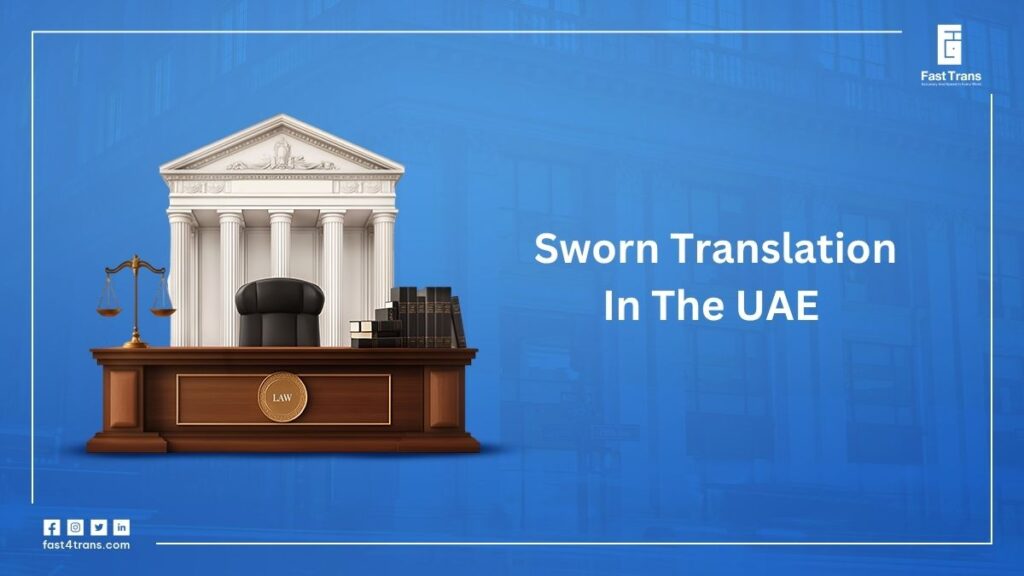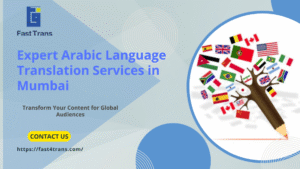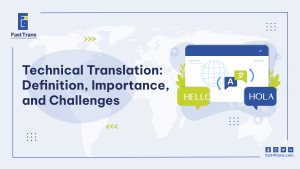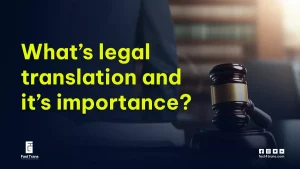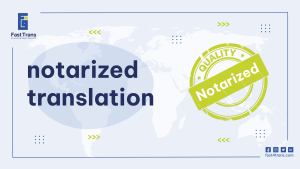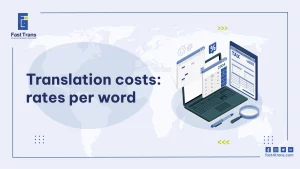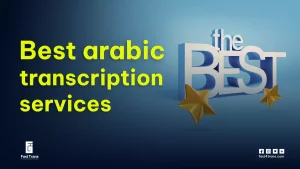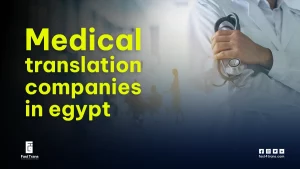In the UAE, a country that brings together people from more than 200 nationalities, translation is more than just a convenience; it is a necessity. From government procedures and business transactions to immigration and education, accurate translation ensures smooth communication and compliance with local laws.
However, not all translations are treated equally. When it comes to official documents, accuracy alone is not enough—legal recognition is essential.
That’s where sworn translators play a critical role. Their work is not only linguistically precise but also legally binding, carrying the same weight as the original document in the eyes of UAE authorities.
What is a Sworn Translator?
A sworn translator is a linguist who has been officially authorized by the UAE Ministry of Justice to translate legal and official documents.
Their translations are recognized as legally valid and can be submitted directly to courts, government bodies, embassies, and other official authorities. Each translation is stamped and signed by the sworn translator, confirming that it is a true and faithful version of the original document.
It’s important to distinguish between different types of translation services:
- Sworn Translation: Performed only by translators approved and licensed by the UAE Ministry of Justice. These translations are legally binding.
- Legal Translation: A broader term often used interchangeably with sworn translation, but in the UAE context, it specifically refers to Ministry-approved sworn translations.
- Certified Translation: A translation accompanied by a certificate of accuracy (common internationally). However, certified translations from abroad are not automatically accepted in the UAE unless they are stamped by a sworn translator.
- Standard Translation: Used for general documents, websites, marketing, or internal communication. These are not legally valid for official purposes.
In short, while any translator can provide linguistic accuracy, only a sworn translator in the UAE provides the legal guarantee that authorities require.
The Role of Sworn Translators in the UAE
Sworn translators in the UAE serve as a vital link between languages and the law. Their primary role is to ensure that translated documents are not only accurate but also legally valid.
Once a sworn translator completes a translation, their stamp and signature give the document the same legal standing as the original, allowing it to be used confidently before courts, ministries, and other government entities.
Because they are officially approved by the UAE Ministry of Justice, sworn translators are entrusted with documents that require the highest level of precision and confidentiality.
From contracts and court judgments to personal certificates and business agreements, their work guarantees compliance with UAE legal requirements and prevents misinterpretations that could lead to delays or disputes.
In essence, a sworn translator does not just bridge language gaps—they provide the legal assurance that every translated word will be accepted and upheld in official settings.
Are Sworn Translators Recognized in Every Country?
Not all countries follow the same system when it comes to sworn or official translation. In the UAE, sworn translators are licensed and approved by the Ministry of Justice, and their translations are legally binding.
However, in other countries, the process can be quite different. For example, in some European countries like Spain and France, translators must take an oath before a court or government authority to be recognized as “sworn.”
In contrast, countries such as the United States and United Kingdom typically use certified translations, where a translator or agency provides a signed statement of accuracy rather than an official government license.
This means that a translation considered valid in one country may not automatically be accepted in another.
For anyone moving documents across borders, whether for immigration, education, or business, it is essential to check the specific translation requirements of the destination country.
When Do You Need a Sworn Translator in the UAE?
In the UAE, sworn translators are required whenever documents must be officially recognized by government bodies, courts, or embassies. Below are the most common situations where their services are essential:
1. Legal Documents
Legal translation is a cornerstone of the UAE’s judicial and administrative systems. If you are dealing with contracts, court rulings, powers of attorney, or affidavits, you will need a sworn translator to ensure the document is both accurate and legally recognized. Courts and legal authorities will only accept documents translated by Ministry of Justice–approved translators, making this step crucial to avoid disputes or delays in proceedings.
2. Immigration & Residency Documents
Immigration is one of the most common areas where sworn translators are required. Passports, birth certificates, marriage and divorce certificates, and academic diplomas often need to be translated into Arabic for submission to the immigration authorities. A sworn translation guarantees that the information is correctly represented, helping applicants secure visas, residency permits, or citizenship without complications.
3. Business Setup & Corporate Documents
Setting up a company in the UAE requires a significant amount of documentation, such as trade licenses, shareholder agreements, and articles of association. These documents must often be submitted to government departments, free zone authorities, or banks, and only sworn translations are accepted. Having them translated by a sworn translator ensures compliance with regulatory requirements and smooth approval of business applications.
4. Academic & Educational Certificates
For students and professionals seeking to study or work in the UAE, educational certificates and transcripts must be officially recognized by local institutions. The Ministry of Education and other authorities require sworn translations of diplomas, degrees, and transcripts as part of the equivalency process. A sworn translation provides the assurance that these documents will be accepted for academic admission, professional licensing, or employment.
Languages Covered by Sworn Translators in the UAE
In the UAE, Arabic is the official language of all legal, governmental, and court procedures. This means that any official document, whether originally in English, French, or any other language, must be translated into Arabic by a sworn translator to be legally accepted. The most common and mandatory language pair is therefore Arabic ↔ English, as English is widely used in business, education, and international communication across the country.
Beyond English, sworn translators in the UAE are also authorized to handle a wide range of other language pairs to meet the needs of the country’s multicultural population. These include French, Russian, Hindi, Urdu, Farsi, Chinese, German, Spanish, and more. This diversity ensures that expatriates, businesses, and institutions can have their documents legally translated no matter their country of origin.
The Legal Framework in the UAE
Sworn translation in the UAE operates under the strict oversight of the Ministry of Justice, which is the only authority responsible for licensing and approving sworn translators. Only translators who have passed the Ministry’s rigorous examinations and obtained official accreditation are legally permitted to provide sworn translations. This ensures that translations meet both linguistic and legal standards.
For a translation to be accepted by courts, ministries, or embassies, it must bear the official stamp and signature of a sworn translator. These marks confirm that the translation is faithful to the original document and has full legal validity. Without them, a translation will typically be rejected by government bodies.
The UAE legal system is very clear on this requirement: whether you are submitting a contract to a court, an academic certificate to the Ministry of Education, or personal documents to an embassy, only sworn translations are considered legally binding. This framework helps maintain consistency, accuracy, and trust in the handling of multilingual documents across the country.
Read Also: From Audio to Text – A Look at Arabic Transcription and Translation
Selecting the Right Sworn Translator for Your Needs
Finding a qualified sworn translator requires careful evaluation of several key factors to ensure your documents receive accurate, legally recognized translations.
1. Essential Qualifications to Verify
The foundation of any reliable sworn translation service is official recognition. Always confirm that your chosen translator holds current approval from the UAE Ministry of Justice.
This certification is non-negotiable for translations that will be submitted to government agencies, courts, or other official institutions. Request to see their credentials or verify their status through official Ministry channels.
2. Matching Expertise to Document Requirements
Different document types demand specialized knowledge and terminology. When evaluating translators, prioritize those with proven experience in your specific area:
Legal Documentation: Contracts, court orders, and legal agreements require translators well-versed in both legal systems and precise terminology that maintains the document’s legal integrity.
Academic Records: Educational certificates, transcripts, and diplomas need translators familiar with academic terminology and institutional structures across different educational systems.
Corporate Materials: Business licenses, financial statements, and corporate documentation require expertise in commercial language and business practices.
3. Practical Considerations for Your Decision
Two critical factors often determine the success of your translation project: confidentiality protocols and realistic timeframes. Sworn translators frequently handle sensitive personal, legal, or business information, making robust confidentiality agreements essential for protecting your interests.
When discussing turnaround times, balance your urgency with the translator’s capacity to maintain accuracy. Quality sworn translations require careful attention to detail, and rushing the process may compromise the precision your documents require for official acceptance.
Read Also: DTP And Why Does it Matter for Arabic Translations
Sworn vs. Certified vs. Standard Translation
| Type of Translation | Who Provides It | Legal Validity in UAE | Where It’s Accepted | Typical Use Cases |
| Sworn Translation | Licensed translators approved by the UAE Ministry of Justice | Fully legally valid | Courts, ministries, embassies, government bodies | Contracts, court rulings, passports, certificates, business setup documents |
| Certified Translation | Professional translator or agency issues a “certificate of accuracy” | Not legally valid unless re-stamped by a sworn translator in UAE | Often accepted internationally, but not automatically valid in UAE | Immigration abroad, academic applications, official submissions outside UAE |
| Standard Translation | Any professional translator or agency | Not legally valid | Internal/company use only, not accepted by authorities | Websites, marketing materials, general communication, internal documents |
Why Choose Fast Trans for Sworn Translation in the UAE?
When it comes to sworn translation, choosing an authorized and experienced provider makes all the difference. At Fast Trans, we work exclusively with translators licensed by the UAE Ministry of Justice, ensuring that every translation is accurate, reliable, and legally valid.
Whether you need translations for legal contracts, immigration documents, business setup papers, or academic certificates, our sworn translators provide fast turnaround times while maintaining strict confidentiality. With expertise across multiple languages and a commitment to quality, Fast Trans is a trusted partner for individuals, businesses, and law firms across the UAE.
Contact us today via our official website
What Our Customers Say
Since the translation project is theirs, we encourage the clients to discuss every stage of the process.
You can check our clients’ comments for yourself at Google Reviews.
1. Can I use a foreign certified translation in the UAE?
No. Certified translations from other countries are not automatically accepted in the UAE. They must be re-translated or stamped by a sworn translator licensed by the UAE Ministry of Justice to be legally valid.
2. How long does sworn translation take?
The time depends on the length and complexity of the document, but most simple documents (like certificates) can be completed within 1–2 business days. Larger legal or business files may take longer.
3. How do I know if a translator is sworn in the UAE?
You can ask for the translator’s Ministry of Justice license number or look for the official stamp and signature on their translations.
4. Do sworn translators handle all languages?
While the main requirement is Arabic ↔ English, many sworn translators in the UAE also cover French, Russian, Hindi, Urdu, German, Spanish, and other languages to meet the needs of the expatriate community.
Conclusion
In a country as diverse and globally connected as the UAE, accurate translation is more than just a service, it is a legal necessity. Sworn translators, licensed by the Ministry of Justice, ensure that documents are not only linguistically precise but also fully recognized by courts, ministries, embassies, and other official bodies.
From legal and immigration documents to business and academic records, their work guarantees compliance with UAE regulations and prevents costly delays or rejections.
Whether you are an individual handling personal paperwork or a business navigating corporate requirements, choosing the right sworn translator is crucial. With trusted providers like Fast Trans, you can be confident that your translations will be accurate, confidential, and legally binding—helping you move forward with complete peace of mind.

